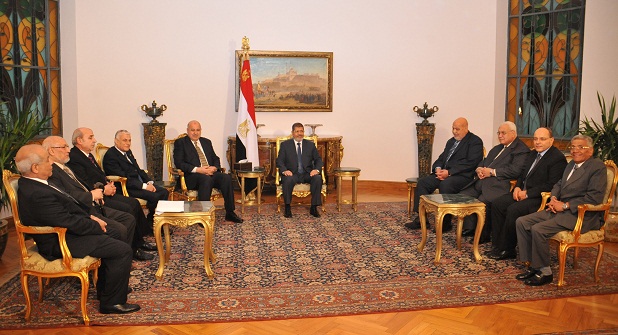Egypt has sought to attract international investors and bolster its economic prospects with a high-level mission to London, as part of a door-knocking initiative. Led by government officials, business leaders, and investors, the visit began on Wednesday, to showcase Egypt’s investment potential, promoting a transition towards a green economy, and highlighting recent successes of British investments in Egypt.
The delegation, organised by the British Egyptian Business Association (BEBA), has already held high-profile meetings. On Friday, Egypt’s Minister of Investment and International Cooperation, Hassan El-Khatib, participated in a roundtable discussion to showcase investment opportunities and strengths of the Egyptian market.
The roundtable, attended by Minister of Finance, Ahmed Kouchouk, Deputy Governor of the Central Bank of Egypt Rami Aboulnaga, Chairperson of the Financial Regulatory Authority Mohamed Farid and foreign officials, focused on key issues affecting emerging markets, including global financial challenges and their impact, as well as investment opportunities in Egypt and other emerging markets.
Discussions highlighted promising areas for attracting foreign direct investment, including sustainable financing and renewable energy, crucial pillars for achieving sustainable economic development in Egypt.
During the meeting, El-Khatib highlighted the Egyptian government’s commitment to creating a conducive investment environment. He pointed out that the government has invested $300bn in infrastructure development over the past decade, with plans to continue developing this infrastructure to achieve economic growth of at least 6-7%.
He also emphasised the importance of public-private sector collaboration to enhance the investment environment, ensuring clarity in economic policies and strengthening transparency to attract further investments, particularly in renewable energy.
He noted Egypt’s potential to develop 100 gigawatts of clean energy, reinforcing its position as a regional energy hub in the future.
The delegation has also seen a series of engagements by the Egyptian Minister of Finance. Kouchouk, as part of his new round of economic dialogue with over 100 representatives from major financial institutions, investment banks, and development banks in London, participated in several roundtable discussions with institutional investors interested in investing in government bond markets worldwide, organised by HSBC, Morgan Stanley, and Jefferies.
Kouchouk spoke about the developments in the Egyptian economy, financial performance indicators, and the structural reforms agenda, as part of a consistent strategy to enhance macroeconomic stability. He answered questions from these institutions, reflecting their keen interest in the Egyptian bond market.
Kouchouk highlighted the “reassuring” state of the Egyptian economy, with “positive” financial performance indicators for the budget during the past fiscal year. Egypt achieved a 6.1% primary surplus, including “Ras El-Hekma” revenues, and a budget deficit reduction to 3.6% of GDP.
Domestic debt for the budget decreased by 4.7% and external indebtedness fell by more than 4%, with an average maturity period of 12.7 years. He noted that Egypt aims to maintain annual primary surpluses to reduce the debt-to-GDP ratio to below 85% by the end of the next fiscal year.
He also emphasised that the Egyptian economy will be more stable with the growth of the private sector and the expansion of its scope in investment and development activities.
He highlighted the government’s tangible efforts to create space for private investment by setting a ceiling for public investments, continuing the government privatisation program, and establishing competitive neutrality by eliminating preferential tax treatment for state-owned companies and entities.
Kouchouk also mentioned the ongoing development of infrastructure, incentives for domestic production and exports, and streamlining procedures, ultimately leading to a “golden licence.”
The mission also included meetings with executives from more than 35 global financial institutions by Aboulnaga, Deputy Governor of the Central Bank of Egypt.
Aboulnaga outlined the Central Bank of Egypt’s vision for the current phase regarding monetary policy, which is characterised by coordination with relevant government entities. He highlighted the importance of coordination and harmony between monetary and fiscal policies, ensuring the achievement of Egypt’s economic policy objectives.
Aboulnaga stressed the Central Bank’s commitment to ensuring the sustainability of policies that support the Egyptian economy and attract and encourage investment.
He emphasised that the goal is not to create temporary booms that disappear quickly but to ensure the strengthening of sustainable confidence in the banking system. “I believe we have what it takes to achieve this,” he stated.
The door-knocking mission marks a concerted effort by Egypt to attract foreign investment, particularly from the UK, and showcases the government’s focus on economic growth and diversification.




